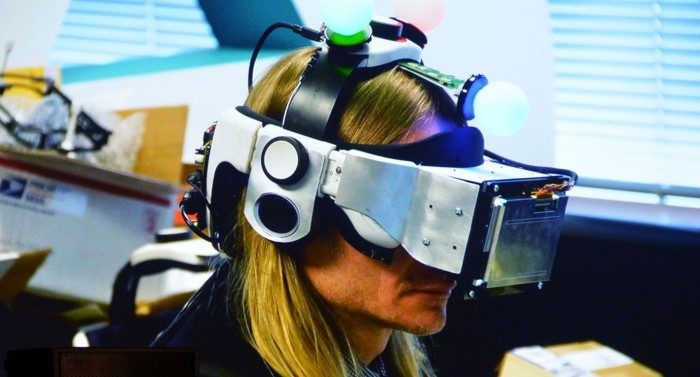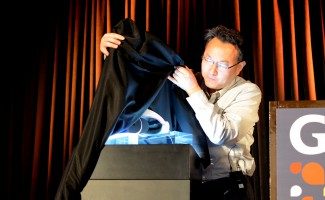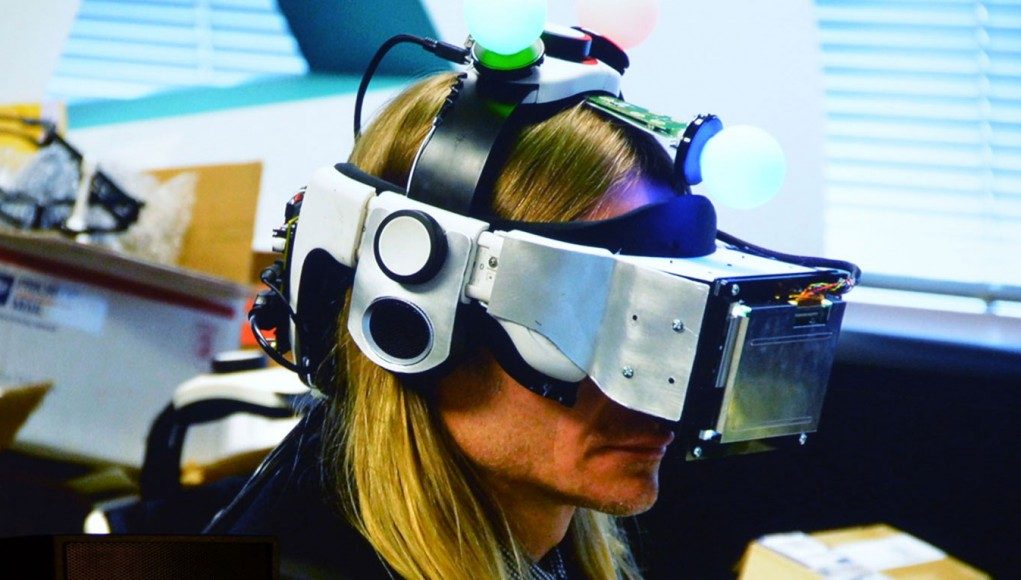
At Gamescom 2014, Road to VR Editor Paul James got to sit down with Anton Mikhailov who works in Sony’s ‘Magic Lab’, an R&D division tasked with creating innovative experiences for PlayStation. Mikhailov revealed that the company has had prototypes of the Morpheus VR headset for a year and a half prior to revealing the public developer kit at GDC 2014 back in March. He further expounds on his work on Morpheus’ vision tracking and Sony’s desire to create a calibration-optional experience.

One of the biggest questions surrounding Sony’s reveal of Project Morpheus, the company’s VR headset for the PlayStation 4, was when they caught on to the idea.
Oculus VR founder Palmer Luckey is the first to admit that the Oculus Rift DK1’s hardware is not the result of any proprietary technological breakthroughs, just the compilation of the right components at the right price. Any big consumer electronics manufacturer had the resources to do what Oculus did. But it took the collective effort of a few thousand developers, enthusiasts, and gamers to get the ball rolling with the 2012 Oculus Rift Kickstarter.
So why didn’t a company like Sony make the move that Oculus did at the time? A major reason seems to be the perceived risk involved. Many companies were jaded after VR of the early 90’s didn’t deliver. Without any apparent breakthroughs, there didn’t seem to be much to gain. The Oculus Rift Kickstarter clearly changed all of that and the big guys quickly started paying attention, especially as Oculus raised several successive rounds of investment, numbering in the 10’s of millions, leading up to the company’s acquisition by Facebook.
See Also: Thoughts On Sony’s Project Morpheus
“…before [GDC]… probably for about a year and a half we’ve actually had people working on it in some capacity.”
In an interview with Road to VR at last week’s Gamescom conference, Anton Mikhailov sheds some light on when Sony realized that VR could be the next big thing… it’s early than you might expect.
“…we’ve had dev kits for quite a while now, like very low volume internal dev kits. The first public dev kit was announced at GDC so after that we opened up to more developers.” Mickhailov said. “But before that… probably for about a year and a half we’ve actually had people working on it in some capacity.” He goes on to reiterate that Sony is still officially calling Morpheus a ‘prototype’.
A year and a half prior to GDC 2014 (March) puts us all the way back to September 2012, right at the end of the Oculus Rift Kickstarter, perhaps making Sony one of the first big consumer electronics companies to get serious about modern VR. A note, tweeted from Oculus CTO John Carmack after Sony revealed Morpheus, seems to corroborate the timing:
Trivia: I had suggested to Sony that they try to hire Palmer Luckey before the Oculus kick starter.
— John Carmack (@ID_AA_Carmack) March 19, 2014
That’s not to say that Sony doesn’t have experience in the realm. Sony has been making head mounted displays long before the Oculus Rift Kickstarter was a spark of an idea in Luckey’s mind. One of the company’s earliest HMD’s was the Sony Visotron, made back in 1993. But of course, the Rift makes the leap from ‘head mounted display’ to ‘VR headset’, the latter including the vital wide field of view and low latency head tracking that make for a true virtual reality experience—not to mention a consumer price point.







